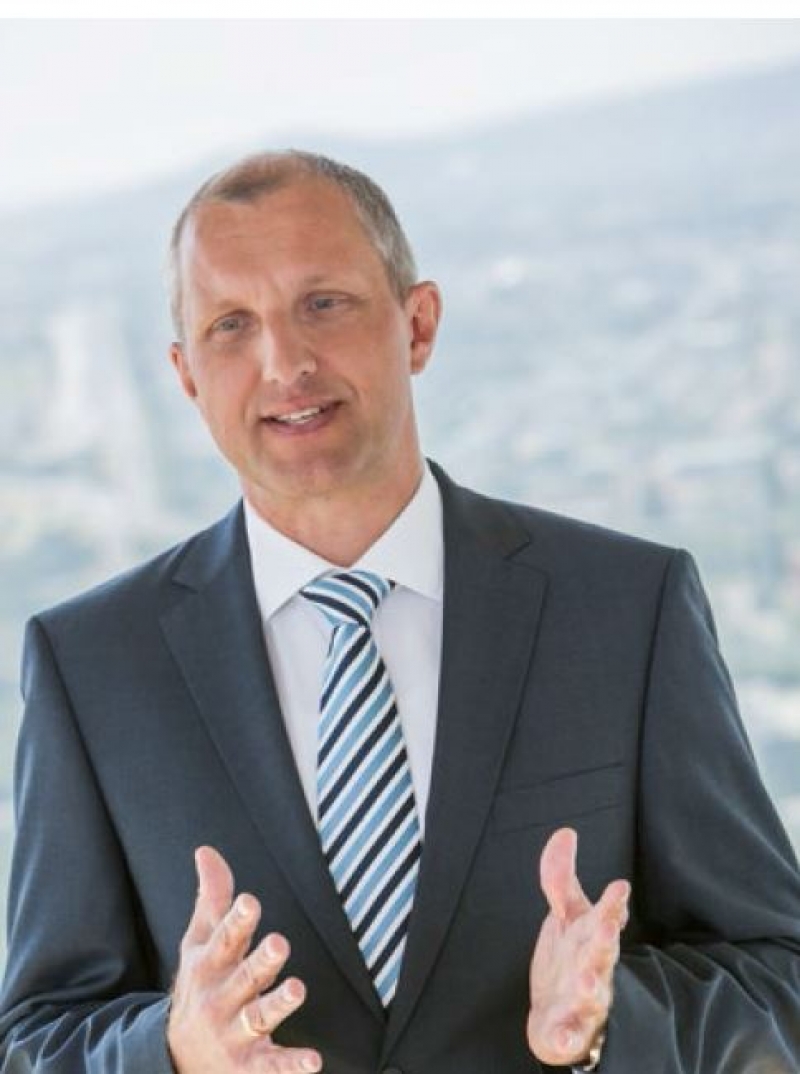
IMMOFINANZ: "We can roll out a product very quickly in several countries"
In an interview for our annual report 2013/14 Andreas Thamm, Director Development within IMMOFINANZ Group, speaks about changes in structure, the basis research of our scouts and real estate development as and industrial production process.In our discussion last year, you indicated that you wanted to increase the intensity of development activities. What has happened since that time?
Andreas Thamm: We took a number of steps to increase the focus on our strengths and make better use of them in our work. On the one hand, our structure is now more decentralised. And on the other hand, we’re concentrating more on the development of brands and portfolios, which means a higher degree of standardisation for our projects.
Let’s take a closer look. How would you describe this structure?
In the core markets for our development business – meaning Germany, Poland, Russia and Romania – we’re now working through local teams and doing everything ourselves: from the search for suitable sites up to the start of construction. We’ve also identified local specialists who can accompany the construction phase. The commercial and residential development departments were combined, and the team from our Romanian subsidiary Adama was integrated. The result is a total of 106 employees in real estate development for IMMOFINANZ Group.
What difference does it make whether the site search is done by a third party or by your local staff?
Put simply: When I contact one of the many service providers, he or she will show me a project that 20 other developers have already seen – and refused for any number of reasons. With our own scouts, we can do real basis research. As an example, let’s take the Moscow Oblast – the heavily populated and economically well-developed area surrounding the capital city: It’s an enormous catchment area which, even without the city of Moscow, has almost as many residents as the entire country of Austria. The municipal government has ambitious urban development plans for this region. Our analyses are designed to identify the cities that could make sense for us – we look at the purchasing power, traffic flows, development and infrastructure plans for the respective area etc. and select the best sites for possible retail or logistics properties based on our defined parameters. In the best case, we might just be the first to look at a particular site.
And when you see sufficient quantitative demand, do you develop a brand concept?
Yes, exactly. We want to rely on our strengths as a large corporation. On individual projects, we might not be able to react as quickly as a local medium-sized developer. But we do have considerable financial strength and a presence in numerous markets, which means we can rely on available structures. That allows us to roll out a product very quickly in several countries – you can compare this with an industrial production process. Our STOP.SHOP. retail warehouse chain is a good example with its uniform quality standards, functionality and high recognition. In addition to the expansion in Poland, we’re currently developing the first STOP.SHOP.s in Romania and Serbia. Our latest shopping center concept – the VIVO! shopping center – is based on the same strategy. And under the LOG CENTER umbrella brand, we want to develop logistics projects with a focus on Romania and Russia.
Do you expect to start projects in these countries during the coming year?
We’ve been working on this for some time. Yes, the purchase of sites by the end of the 2014/15 financial year is definitely possible.
IMMOFINANZ has extensive land reserves, above all in Romania. Do you see any new possibilities here?
Our procedure for these sites is very structured and includes the regular evaluation of potential projects. The fact that some of these sites are located in very interesting areas is a great advantage. That helps us to shorten the entire development process by roughly one-third.
You named four core countries that are the target areas for most of your development activities or possible locations for in new projects. Where exactly is your focus?
Primarily on the retail sector in Poland, where we are currently completing the Tarasy Zamkowe shopping center in Lublin and working on the roll-out of our STOP. SHOP.s. In addition, the first VIVO! shopping center is expected to open in Pila, a city in the northwestern region of Poland, during the 2014 calendar year. We’ve already started work on further VIVO!s, but also have projects in the office sector on our radar. In Germany we’re concentrating on the completion of the Gerling Quartier, our urban development project in Cologne. We’re also active in the office and logistics sectors – through our Deutsche Lagerhaus subsidiary we have already become a major player on the logistics real estate market with locations across the country. North Rhine-Westphalia is the focal point for further office projects because we’re well recognised in this region due to our latest development projects. We also see substantial opportunities in the office segment, above all in Berlin.
Our activities in Romania are currently centered on the retail and logistics sectors, but we also plan to use some of our land reserves for further residential property investments under our Adama brand. However, these investments only involve apartments that are designated for sale. And after we completed construction on our GOODZONE shopping center in Moscow during the 2013/14 financial year, we started to evaluate further investment opportunities in the retail and logistics areas. We’ve identified a number of prospects in recent months, but they are smaller projects – not on the scale of GOODZONE.

